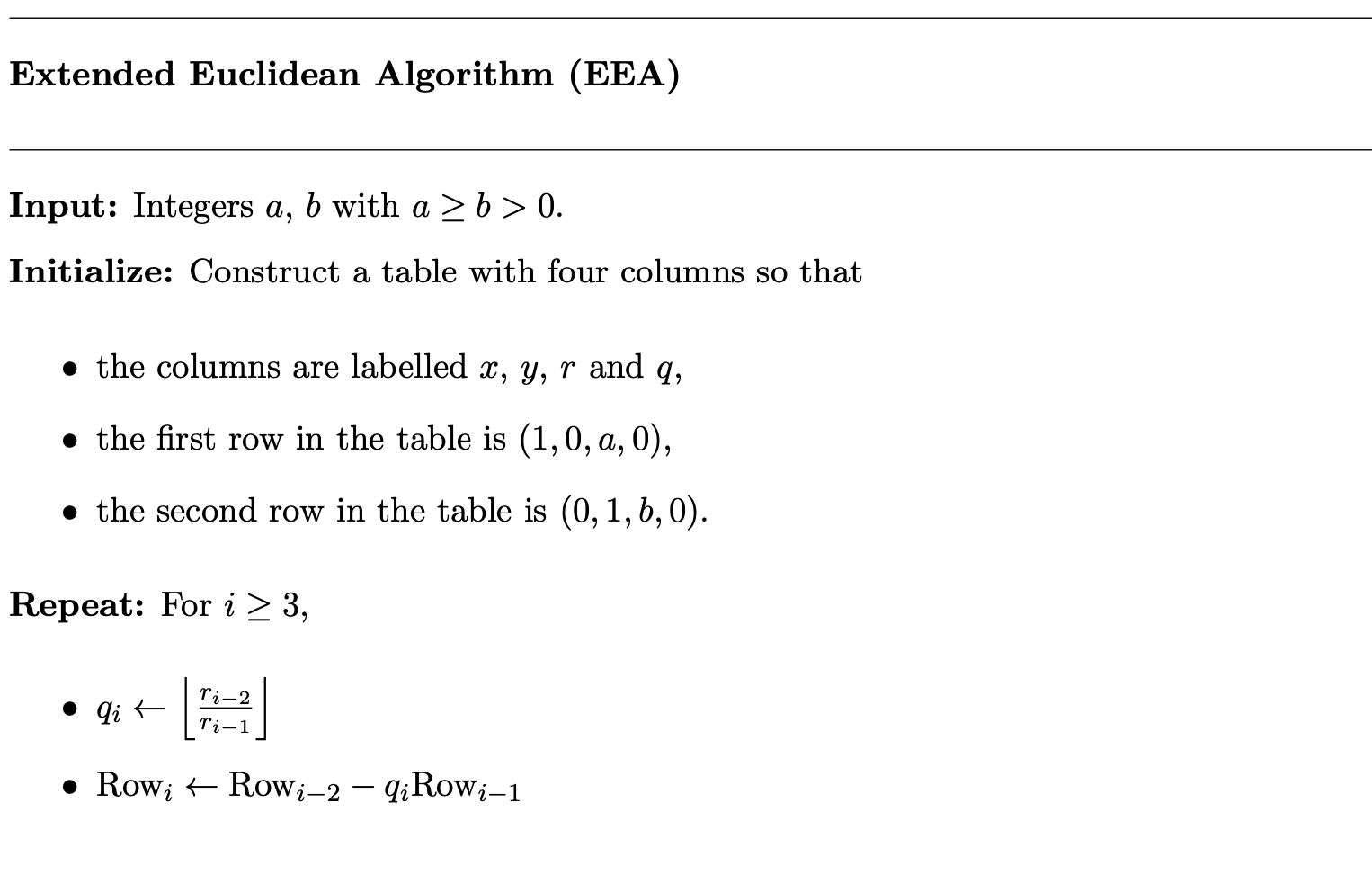Extended Euclidean Algorithm (EEA)
The extended Euclidean Algorithm allows us to calculate , and solve the Linear Diophantine Equation for in terms of and , where
We know that an answer always exists from Bezout’s Lemma.
LCM and GCD
int gcd(int a, int b) { // Euclidean Algorithm, however this is already implemented in C++
if (b == 0) return a;
return gcd(b, a % b);
}
int lcm (int a, int b) {
return a / gcd(a, b) * b;
}Recursive (implements EEA)
int gcd(int a, int b, int& x, int& y) {
if (b == 0) {
x = 1;
y = 0;
return a;
}
int x1, y1;
int d = gcd(b, a % b, x1, y1);
x = y1;
y = x1 - y1 * (a / b);
return d;
}
Iterative (i think the way we learned in class), faster than recursive above
int gcd(int a, int b, int& x, int& y) {
x = 1, y = 0;
int x1 = 0, y1 = 1, a1 = a, b1 = b;
while (b1) {
int q = a1 / b1;
tie(x, x1) = make_tuple(x1, x - q * x1);
tie(y, y1) = make_tuple(y1, y - q * y1);
tie(a1, b1) = make_tuple(b1, a1 - q * b1);
}
return a1;
}
There is something very important to observe about the table. If we are computing , then for each row of the table we have
Input: Integers , with Initialize: Construct the table with four columns so that
- the columns are labeled ,
- the first row in the table is ,
- the second row in the table is .
Repeat: For ,
Stop: When
Output: Set . Then , and and are a certificate of correctness.

